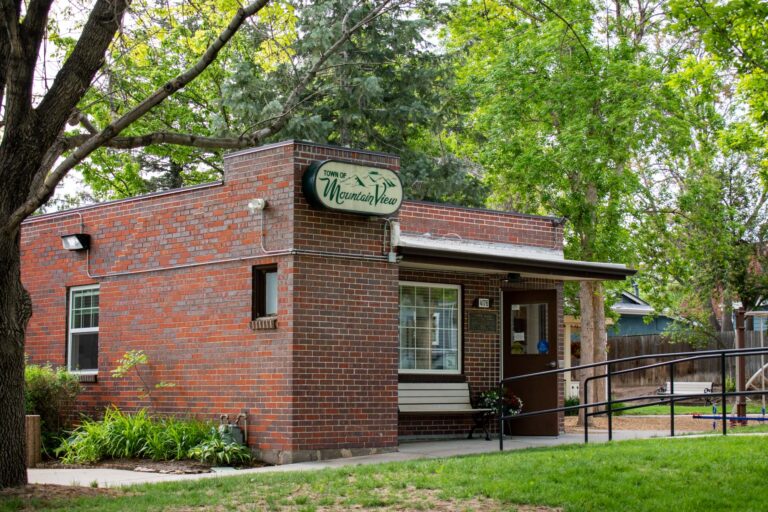I often hear questions about how local government works and why decisions are made the way they are. These questions reflect care for our community, and I’m grateful for that. Today, I’d like to offer some insight into how municipal governance functions and why it operates as a representative democracy, not a direct democracy.
Local government, like other levels of governance in our country, is rooted in representative democracy. This means you elect officials (your mayor and council in our case) to make decisions on your behalf. While direct democracy, where every individual votes on every issue, might sound ideal, it is impractical for most communities and often leads to unintended consequences.
In representative democracy, elected officials weigh competing interests and make decisions that balance the needs of the entire community, based on all the information at hand and within the framework of the Town Charter, Code, and state and federal laws. Governance requires expertise, deliberation, and consideration of long-term impacts—qualities that aren’t always compatible with the immediacy of direct public votes.
This allows for thoughtful policy-making, informed by expert input and broad community engagement. Your elected representatives spend hours reviewing reports, consulting with stakeholders, and debating options to ensure decisions are well-informed. This helps avoid the pitfalls of impulsive or emotionally charged decision-making.
Misunderstanding how local government works can lead to frustration and mistrust. When people expect their voices to translate immediately into policy, they might feel unheard when decisions don’t align with their preferences. However, governance is about serving the collective good, not just the loudest voices or the most popular opinions at any given moment.
Populism, while tempting in times of discontent, often promises quick fixes and appeals directly to public sentiment, bypassing deliberative processes that ensure fair and equitable decision-making. While it might feel empowering initially, populism can lead to hasty decisions that neglect larger community needs or ignore long-term consequences.
It can also encourage cliques, rumors, and bullying, derailing thoughtful decision-making. Elected officials, like all people, are not immune to pressure and intimidation. When citizens use pressure tactics instead of reasonable conversations that acknowledge the many factors council members must balance, it can result in decisions based more on fear or popularity than on facts and accurate understandings.
To counter this, supportive voices must also engage. If you appreciate the work of council or support a particular policy, let us know! Constructive feedback and encouragement help ensure all perspectives are considered. Thoughtful governance thrives when elected officials feel empowered to make decisions based on a full spectrum of input.
Consider a proposal to drastically cut property taxes overnight. On the surface, this might seem like a win for taxpayers. However, closer examination reveals that such a move could severely impact funding for police services and infrastructure maintenance—things vital to our town. By the time the consequences become apparent, the damage could be irreversible. Representative government, tasked with balancing immediate desires against future needs, is more likely to approach such decisions with caution and foresight.
Public input is a cornerstone of representative democracy. Attending council meetings, participating in public hearings, and sharing your perspectives with elected officials are vital ways to ensure your concerns are heard. This allows the governing body to incorporate diverse viewpoints into their decision-making process.
Our system isn’t perfect, and there’s always room for improvement in fostering transparency and trust. But representative democracy remains the best way to ensure our government serves the entire community effectively and equitably.
Thank you for your continued engagement and dedication to our town. Together, we can navigate the complexities of governance while staying true to the principles that strengthen our democracy and community.
The Town of Mountain View Welcomes our New Town Clerk
Mrs. Onorina Maloney was appointed by the Mountain View Town Council to serve as the new Town Clerk, and took her oath of office on January 21, 2025. The Mayor and Council welcome her in her new role.
The Town Clerk is an integral part of making good governance work in Mountain View and is responsible for administering elections, taking minutes at meetings, approving business licenses and permits, open records requests, and many other things. Most importantly, she is a key team member in the town’s commitment to maintain open and democratic processes. Mrs. Maloney brings many years of experience with elections, record keeping, public relations, and other aspects of municipal governance to Mountain View.
The town received multiple unsolicited, enthusiastic endorsements from people who have worked with Mrs. Maloney in the past. “She is a dedicated, creative, and diligent individual. She has a charming demeanor and a unique ability to make everyone she encounters feel comfortable, heard, and related to. Her work ethic will prove to be invaluable. Her talent and vision will be an asset to your community. She is still loved and missed in our community,” said one individual. Another reached out to state, “I was blessed to work with her for many years! Onorina is the best of the best!”




